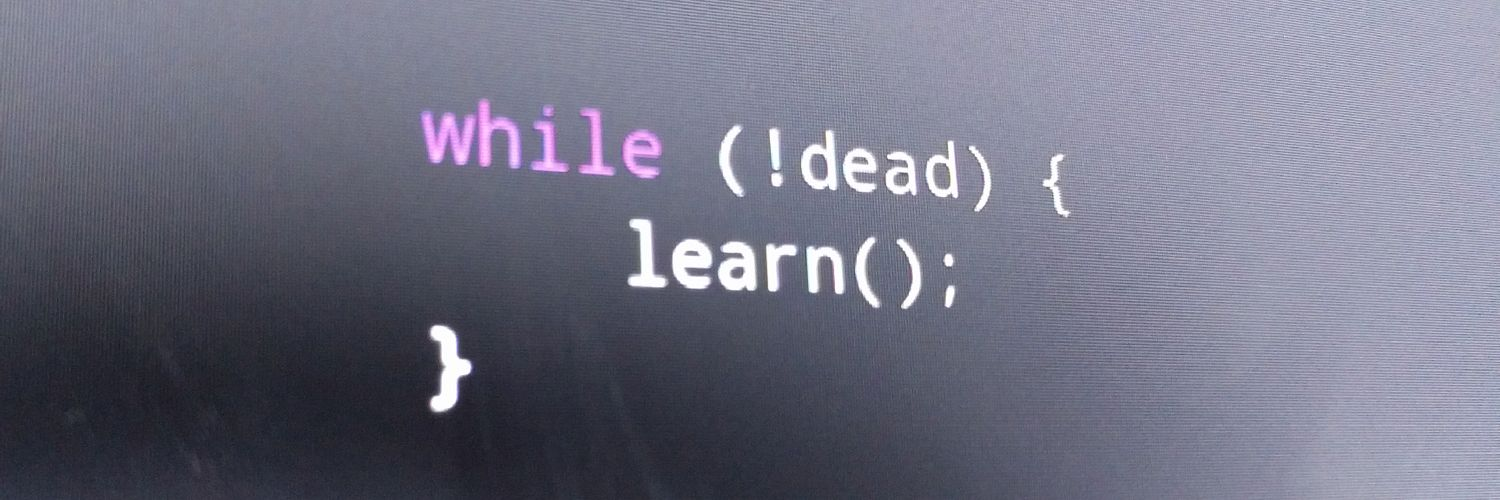Throwaway Projects
A big obstacle in my learning of new technologies, patterns and methods, has been my reluctance to do throwaway projects. I have a really hard time with them. Always have, in all their many forms. At times I have even actively disdained them as a useful way to learn, for various reasons.
There have been a lot of things I've been curious about and wanted to learn. I'm a programmer, so that really goes without saying. And goodness knows that, relatively unencumbered from social obligations, as geeks tend to be, I've had enough free time in my life that I could have dedicated some of it to working on some little test or toy projects to get a handle on these things. But I've always managed to convince myself it wasn't necessary, or even that it was a waste of time. Usually I accomplish this by claiming that I learn more and better from doing "useful things". Throwaway projects don't impress real constraints on you, and so they let you take liberties or make compromises that wouldn't fly when trying to actually get something done. And I was convinced that this meant the knowledge gained would be less useful or applicable to real problems.
Today I had the revelation that I couldn't possibly have been more wrong.
I was faced very recently with a number of opportunities to work on some new things, to "get stuff done", involving some technologies I'm not really at all familiar with. I initially thought to myself that this is a great opportunity to finally ramp up on some things I've been wanting to learn. But after a bit more thinking, I found myself in one case completely unsure whether I could accomplish the goal on the necessary timeline, and in the others quite certain there was no way that I could.
That's when it hit me. I realized what teachers of all stripes have known for centuries. While I've learned an awful lot about programming on the job, those fundamental lessons that my knowledge are rooted in were very rarely learned in the active pursuit of an important functional goal.
Let's first acknowledge the obvious and ubiquitous example of homework. Homework is nothing but throwaway problems. I learned the value of homework (finally) when I moved from high school, where I breezed through on in-class osmosis, to college, where info came so fast and furious that I couldn't absorb it in the desk.
In grade school, I did rote program transcription in Apple Basic. In middle school I messed around for hours, daily, in QBasic on my parents' desktop. There I played with graphics and sounds. I poked and prodded at parts of the QBasic games that were packaged with DOS. In high school I moved on to trigonometry, large-number math, a text-based RPG in the vein of LORD, 3D wireframing, and even created a graphing calculator that would automatically scale to fit one cycle of a sinusoidal function.
One useful thing I did do in QBasic was to write a file chunker that would split a file into either a particular number of pieces, or pieces of a particular size. The goal of that was to more easily share games that wouldn't fit on a single floppy, or that would take several hours to transfer over 14.4kbps modem. So, okay that was functional, and I learned a bit about file access in QBasic from it, but nothing much. Until I started to learn C++ in college, when the very first thing I did was to port my file-splitter from QBasic. I did this knowing that not only was it not very useful, but there were many freeware apps that did it better than mine. But I learned about the fundamentals of C++ syntax, style, and common pitfalls. It gave me a starting point and saved me from what would have otherwise been embarrassingly slow, trial-and-error progress on the first project of my internship.
What I missed was the now-obvious truth that being free to take liberties and make compromises that you wouldn't do in production is the perfect sandbox for making mistakes, which is a crucial part of the learning process. I had it just plain backwards.
So here I sit. Mind blown. Feeling like an idiot. I still hate doing throwaway projects, but now I know I can't afford not to. I just need to man up and fight that voice in my head that nags at me saying, "why are you writing the world's millionth blog engine when you could be working on real problems that are actually still in need of better solutions?" Because the truth is that before I can reinvent banking, for example, there are a few things I need to learn before I'll even know where to start. And the best way to do that is to play in the sandbox for a while.
